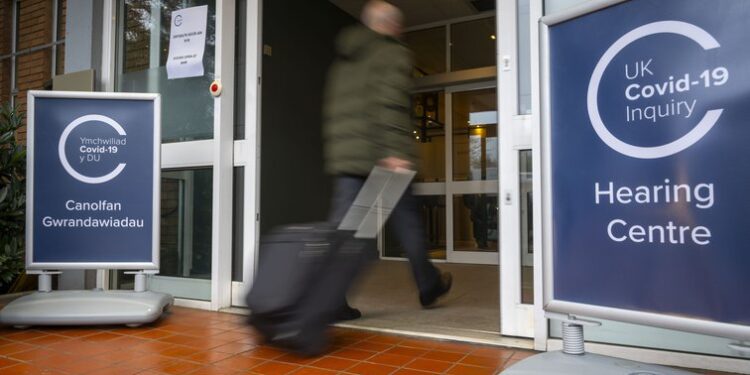The Covid Inquiry has recently faced criticism for allocating more than £3 million in contracts for emotional support services. The goal of these services is to prevent the “retraumatisation” of witnesses involved in the inquiry. The contracts, which will continue until February 2026, have been labeled as a waste of money by some.
Two contracts that were awarded to Health Assured Limited have already been terminated, but participants in the inquiry will still be offered emotional support as part of a commitment to being “trauma-informed.” Another contract with Hestia Housing remains active.
According to the Cabinet Office website, the purpose of these support services is to reduce the risk of retraumatisation for individuals engaging with the inquiry. The focus is on providing timely and sensitive emotional support rather than counseling or therapy. The aim is to facilitate engagement with the inquiry, create support plans, provide psychological containment, and guide individuals through their engagement process.
Sir Edward Leigh, a veteran Conservative MP, has criticized the allocation of these contracts, calling it a waste of money. He also expressed his belief that the severity of lockdown measures during the Covid-19 pandemic was a mistake and has had a traumatizing impact on generations of children who were kept away from school for extended periods. He suggests that the inquiry should instead focus on examining the reasons behind the successive lockdowns and their effects on people's long-term health.
The controversy surrounding the allocation of funds for emotional support services comes at a time when many are questioning the overall effectiveness of lockdown measures and their impact on society. The Covid Inquiry has an important task ahead of it to address these concerns and provide answers that satisfy the public's desire for transparency and accountability.
As the inquiry continues, it remains to be seen how these emotional support services will contribute to the overall process. Critics argue that the funds could be better allocated elsewhere, while proponents believe that prioritizing the emotional well-being of witnesses is crucial for a fair and thorough investigation.
In conclusion, the allocation of over £3 million in contracts for emotional support services by the Covid Inquiry has sparked controversy and criticism. While the intention behind these services is to prevent retraumatisation, some argue that the funds could be better utilized for other purposes. As the inquiry progresses, it will be interesting to see how these support services impact the overall process and whether they prove to be a valuable resource for witnesses involved.







